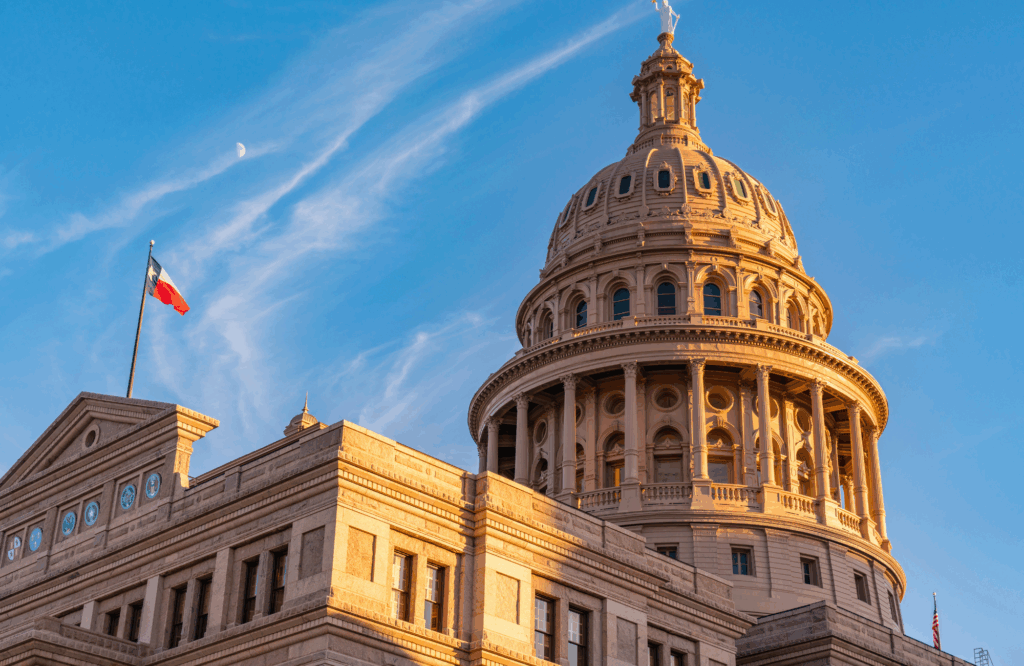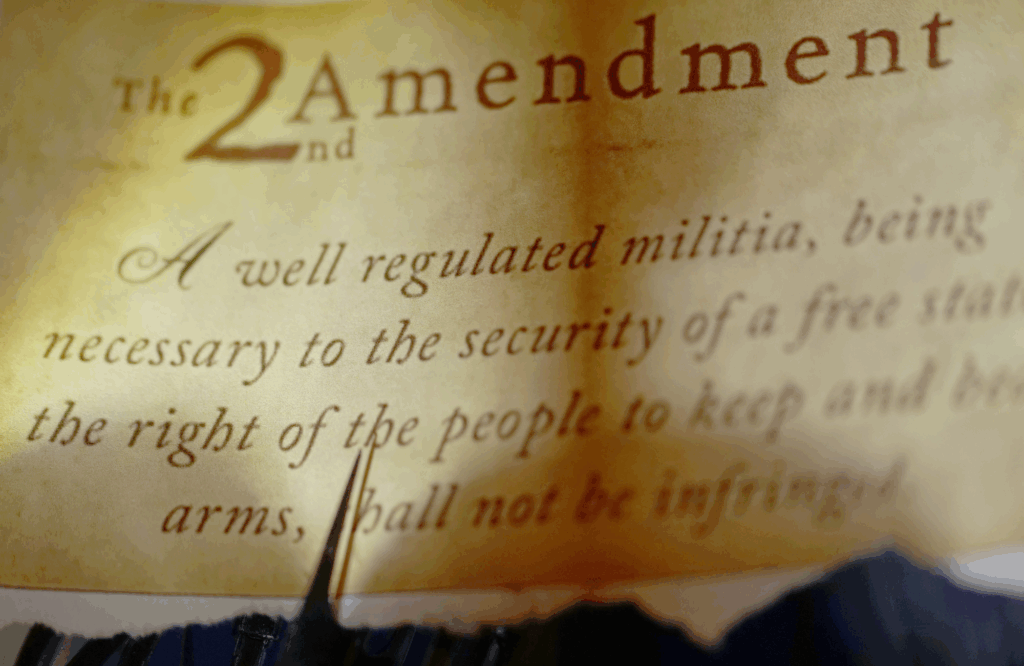
Recent Texas Laws Reshape Bail, Immigration, and Gun Rights
Recent Texas laws have introduced significant changes in criminal justice, immigration enforcement, and individual rights, affecting courts, law enforcement, and residents across the state. Below is a breakdown of the most important updates signed into law or still pending as of mid-July 2025.

Strengthened Bail Reforms
On June 3, 2025, Governor Greg Abbott signed into law what many are calling the most substantial bail reform package in Texas history. This includes Senate Bill 9 (SB 9), Senate Bill 40 (SB 40), House Bill 75 (HB 75), and Senate Joint Resolution 5 (SJR 5), each targeting different aspects of how bail is set, who makes the decision, and how public safety is weighed against individual rights.
Key Provisions:
- SB 9 limits bail decisions in serious felony cases to elected district judges, instead of magistrates. It also allows prosecutors to challenge bail decisions they believe put the public at risk and restricts non-cash bonds for specific violent or repeat offenses. The bill also adds layers of accountability: judges must issue written findings if they find no probable cause to hold someone, and magistrates can no longer override district judges on bail conditions. For defendants with felony records, ICE holds, or pending felony charges, bail cannot be set without judicial review.
- SB 40 bars local governments from using public funds to pay bail bonds, including payments to nonprofit bail organizations funded by tax dollars. If this rule is violated, residents have the right to seek injunctive relief. The bill was designed to ensure that taxpayer dollars aren’t used in ways that may conflict with public safety interests.
- HB 75 now requires magistrates to issue a written explanation within 24 hours when dismissing charges for lack of probable cause. This adds a level of transparency and reinforces accountability in early case decisions.
- SJR 5, if approved by voters in the November 2025 election, would amend the Texas Constitution to allow judges to deny bail altogether in certain violent felony cases. Under the proposed rules, bail could be denied when clear and convincing evidence shows a defendant poses a risk to public safety or is unlikely to return to court. Judges would be required to issue a written order detailing their findings.
Why This Matters
This package marks a major shift in Texas pretrial policy, one that prioritizes public safety and judicial oversight while raising important concerns about fairness and access to justice. For defendants, particularly those from low-income backgrounds, these laws could make it harder to secure release before trial. At the same time, prosecutors now have more tools to challenge low bail amounts, and judges have more discretion to hold defendants without bond in the most serious cases.
These changes increase the pressure at the very beginning of a criminal case. What happens in those early hearings can shape outcomes dramatically. That’s why experienced legal counsel is more important than ever, to ensure that constitutional protections aren’t lost in a system leaning harder on restriction and control.

New Gun Rights Law: Ban on Red-Flag Orders
On June 22, 2025, Governor Greg Abbott signed Senate Bill 1362 (SB 1362) into law, also known as the Anti–Red Flag Act. This law prohibits Texas courts and government agencies from recognizing or enforcing extreme risk protective orders (ERPOs), commonly referred to as red-flag laws. These orders are used in other states to temporarily remove firearms from individuals considered a danger to themselves or others.
Under SB 1362:
- Texas entities, including courts, police departments, district attorneys, and municipal governments, may not adopt or enforce any measure related to ERPOs unless explicitly allowed under Texas law.
- State and local agencies are barred from accepting federal funds for the purpose of enforcing red-flag laws.
- Anyone who enforces a red-flag order in Texas, unless it was issued under Texas law, commits a state jail felony.
This statute also clarifies that it does not apply to protective orders issued under the Texas Family Code or Code of Criminal Procedure, such as those used in domestic violence cases.
Why This Matters
Supporters of SB 1362 say it protects Second Amendment rights and limits federal overreach into Texas criminal law. Opponents argue it eliminates a potentially life-saving tool used in other states to prevent suicides, domestic violence, and mass shootings, especially in cases where warning signs are visible but other interventions are limited.
The law raises important questions about how mental health concerns involving firearms will be addressed in the absence of ERPO-style mechanisms. For individuals facing criminal charges involving weapons or mental health concerns, understanding how these changes impact legal strategy and protective orders is critical.

Immigration Enforcement Expansion: ICE-Sheriff Cooperation Mandate
In June 2025, Governor Abbott signed Senate Bill 8 (SB 8) into law, requiring sheriffs in Texas counties with populations over 100,000 to enter into a 287(g) agreement with U.S. Immigration and Customs Enforcement (ICE) by January 1, 2026. The 287(g) Program allows local law enforcement to carry out certain federal immigration enforcement duties, including identifying and processing undocumented individuals.
These agreements give local law enforcement the authority to act in certain immigration enforcement roles, detaining individuals based on immigration status, facilitating deportations, and coordinating with federal agents. The law applies to many of Texas’s largest counties, including Harris, Dallas, Travis, and Bexar.
Why It Matters
SB 8 marks a major shift in how immigration is handled inside Texas jails. Supporters say it strengthens public safety and ensures criminal defendants with immigration violations are flagged for deportation. But critics warn it could increase racial profiling, erode trust in law enforcement, and overwhelm jail systems with added responsibilities and costs.
For individuals with non-citizen status, even a minor arrest could now result in ICE notification and federal detention. If you or a loved one is a non-citizen facing criminal charges in a covered Texas county, it’s important to understand how this law could impact your case, especially during the booking and pretrial stages.

Texas Joins Strategic Bitcoin Reserve Movement
On June 20, 2025, Texas became the third state in the U.S. to create a government-run Bitcoin reserve. Under Senate Bill 21 (SB 21), the Texas Strategic Bitcoin Reserve is now law. Managed by the State Comptroller, the reserve allows Texas to purchase, hold, and manage Bitcoin and select cryptocurrencies as part of the state’s financial strategy.
SB 21 authorizes the comptroller to work with qualified custodians and financial providers, use cold storage for asset security, and issue biennial public reports detailing holdings and reserve performance. The law also establishes a Strategic Bitcoin Reserve Advisory Committee to guide policy and asset management.
To qualify for investment, cryptocurrencies must meet a strict threshold: a $500 billion average market cap over the past 24 months. This reserve is not held in the state treasury and cannot be spent or liquidated without legislative approval, except for temporary cash management during fiscal emergencies.
Why This Matters
While not a criminal justice law, SB 21 signals a major shift in how Texas approaches governance. It’s a move toward financial autonomy, inflation hedging, and digital asset adoption. For those navigating legal or financial uncertainty, especially in matters involving public funds, government oversight, or regulated industries, this signals that Texas is widening its regulatory and economic focus.
Whether it’s a court fee, state contract, or new tax policy, this kind of structural innovation could eventually ripple across legal practice areas.

Still in the Works
Several key bills didn’t cross the finish line, but they’re not dead yet. Lawmakers are heading into a special session this July, and these major proposals are likely to resurface.
SB 3: Proposed Ban on Hemp-Derived THC Products
Status: Vetoed June 23, 2025
Next Step: Special session begins July 21
What It Would Have Done: Senate Bill 3 (SB 3) would have banned the sale of most THC-infused consumable hemp products (like Delta-8 and Delta-9 edibles) outside of the Compassionate Use Program.
Why It Was Vetoed: Governor Abbott cited major legal problems, conflicts with federal law, vague language, and the risk of lawsuits similar to those in Arkansas. He’s calling for a revised version that would withstand court challenges and go into effect immediately.
Why It Matters: This affects businesses, patients, and criminal liability. If you sell or possess these products, or are charged with a related offense, legal rules may shift fast and dramatically.
HB 3006: Prison Cooling Requirement
Status: Still pending
What It Would Do: House Bill 3006 (HB 3006), which would require climate control systems in all Texas prisons by 2032, is still moving through the legislative process.
HB 3330 / SB 1124: Revisions to the Michael Morton Act
Status: Still under consideration
What They Would Do: House Bill 3330 (HB 3330) and Senate Bill 1124 (SB 1124) propose significant changes to the Michael Morton Act, which governs how prosecutors must share evidence with the defense.
SB 1278: Affirmative Defense for Trafficking Victims
Status: Vetoed June 22, 2025
Next Step: Added to the special session agenda starting July 21
What It Would Have Done: Senate Bill 1278 (SB 1278) would have created an affirmative defense for individuals prosecuted for crimes committed while they were victims of human trafficking or compelled prostitution. If the individual acted under coercion, duress, or threat, such as fear of serious harm, they could claim this defense, even if the coercion wasn’t immediate or physical.
Why It Was Vetoed: Governor Abbott argued the bill was too broad. While acknowledging the need to protect survivors, he warned that the language could allow anyone who claims to be a victim to evade responsibility for serious offenses, including violent crimes. He called for a narrower version that protects actual victims without undermining accountability.
Why It Matters: This bill tackles a real legal gap; the current duress defenses don’t fully account for the complex, non-physical coercion traffickers use. A properly tailored version could transform how the justice system treats trafficking survivors. But the final language must carefully balance victim protection with public safety.
SB 2878: Overhaul of Judicial Procedures and Expunction Rules
Status: Vetoed June 22, 2025
Next Step: Added to the special session agenda starting July 21
What It Would Have Done: Senate Bill 2878 (SB 2878) was pitched as a routine judicial procedures bill, but included major changes, most notably, allowing unlimited automatic expunctions for anyone who completes a pretrial intervention program. It also contained broad reforms to court operations and judicial administration statewide.
Why It Was Vetoed: Governor Abbott said the bill bundled too many complex policy changes that weren’t properly debated. He’s open to most of it becoming law, but wants a cleaner version without the controversial parts.
Why It Matters: If you’ve ever been offered pretrial diversion or are seeking to clear your record, this bill could eventually expand eligibility for expunctions. It also affects how courts function day-to-day, including timelines and procedures that could directly impact your case.
How This Affects You
Texas is undergoing significant criminal and administrative shifts, from bail restrictions and gun rights to immigration enforcement and financial policy. These changes may impact bail processes, court hearings, jail intake, and even the state’s financial posture.
At The Law Office of Brett A. Podolsky, we proactively track every new law, whether it’s bail hearings, immigration holds, or evolving cannabis and evidence rules, to help clients make informed, confident decisions.
If you or a loved one faces new or ongoing legal issues, now is the time to act. Understanding your rights and options early can make all the difference.
